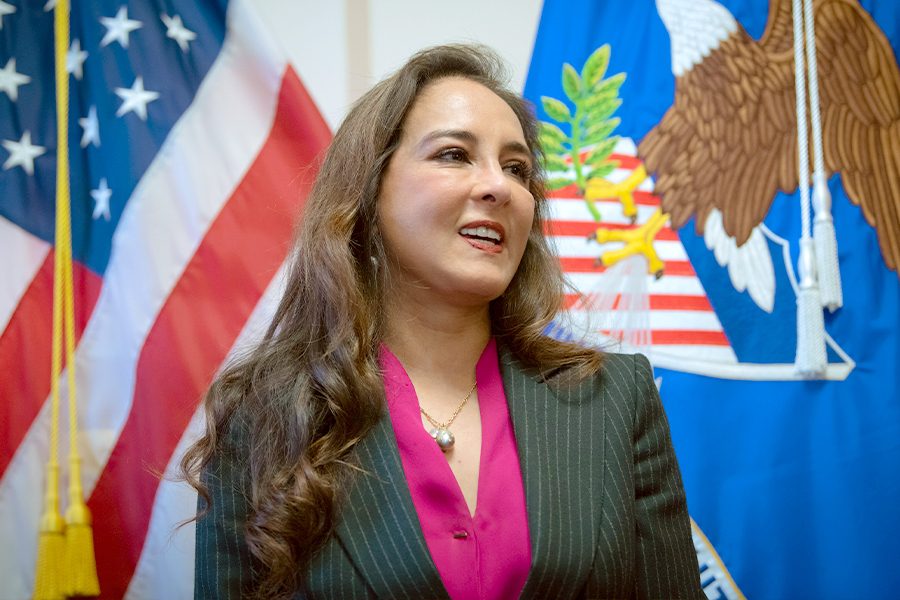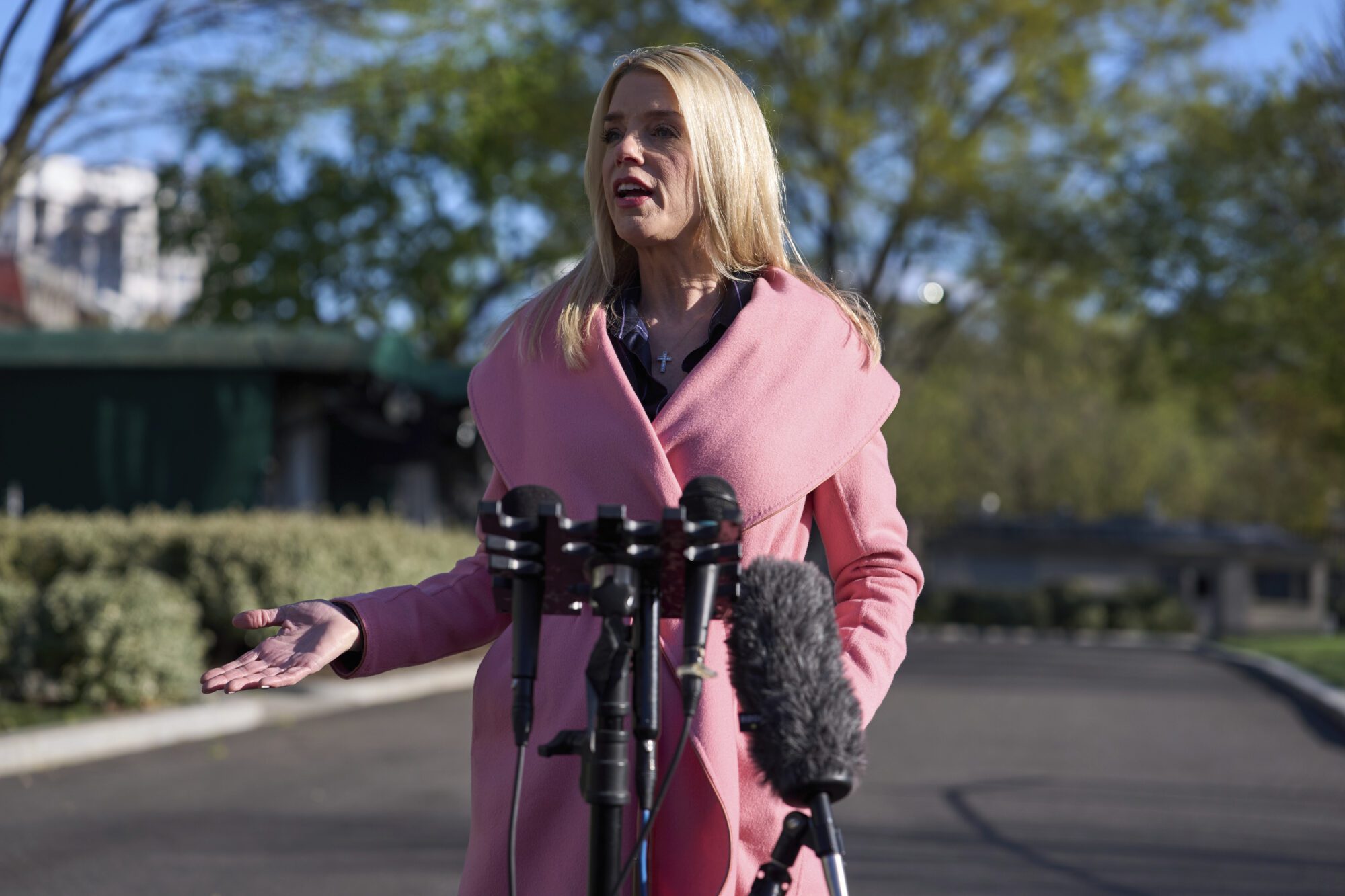
The newly appointed Assistant Attorney General for the Civil Rights Division Harmeet Dhillon stands in front of the American flag (left) and the Department of Justice flag (right). (Photo from the U.S. DOJ)
- The DOJ under the Biden Administration filed the lawsuit just days after the 2024 presidential election.
In the waning days of the Biden Administration, the U.S. Department of Justice filed a lawsuit in the U.S. District Court for the Southern District of Mississippi, alleging that the Mississippi State Senate paid a former black staff attorney about half the salary of her white colleagues in violation of Title VII of the Civil Rights Act.
On Tuesday, the Justice Department voluntarily dismissed the lawsuit, according to a court filing from Assistant Attorney General Harmeet Dhillon, the new head of the DOJ’s Civil Rights Division for the Trump Administration.
No specific reasons for the dismissal were included in the filing and no statement on the action was forthcoming from the DOJ.
When the DOJ announced the lawsuit on November 8, 2024, then-Assistant Attorney General Kristen Clarke with the Civil Rights Division said the lawsuit “makes clear that race-based pay discrimination will not be tolerated in our economy.”
The DOJ alleged in the complaint that the Mississippi State Senate discriminated against former staff attorney Kristie Metcalfe by paying her significantly less than every other staff attorney, all of whom were white.
The complaint further alleged that the pay gap between Metcalfe and her white colleagues began when she was hired and was perpetuated in several additional discriminatory pay actions during her tenure. She was the first black staff attorney for the Senate in 34 years when she was hired in 2011. Metcalfe served in the position until 2019.
DOJ was seeking back pay and compensatory damages for Metcalfe.
In January, after the Trump Administration came into office, attorneys representing the Mississippi Senate in coordination with the state Attorney General sought to put the proceedings on hold, citing the administration’s litigation freeze.
U.S. Magistrate Judge Andrew Harris then granted a 90-day stay in February, citing the need for the plaintiff – the new officials at DOJ – to review the matter.











